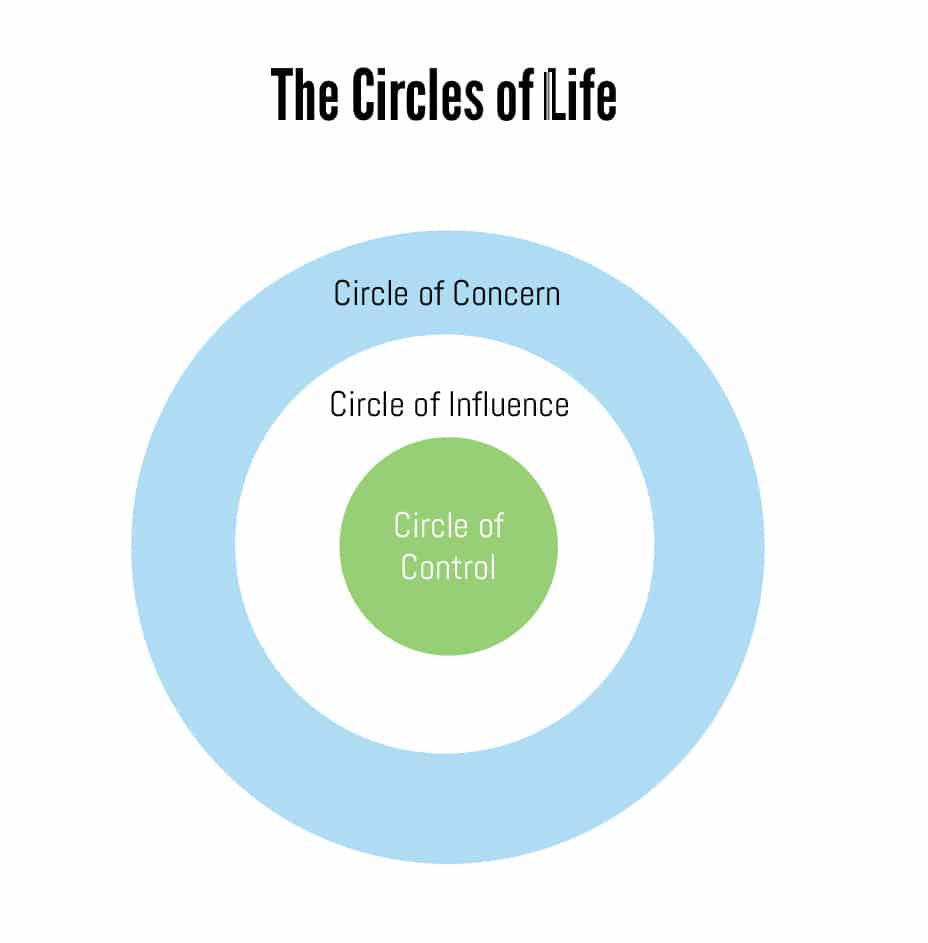Why You Get Dumped on and What to Do About it
Spoiler alert: You probably get dumped on because you allow yourself to be dumped on — but plenty can be done to change that.
There's a serious downside to flourishing: you become a target to be dumped on.
People sense your strength of character and burgeoning wisdom and find you a source of comfort and calmness — then very quickly unload their problems on you.
What they (usually) don't realize is how much this affects you, because you're not used to the emotional chaos and issues your heart and mind are now trying to wrap themselves around. It's all the worse because the people who are most effective at unraveling you (family and friends) are also the people who are the most likely to dump on you.
The hard truth, though, is that you get dumped on because you allow yourself to be dumped on. To be fair, you allow yourself to be dumped on because the dumper gets through to the best part of you — the part that wants to help and knows how to solve problems. In most cases, you allow yourself to be dumped on because you think you can influence them when in fact you can't. I'll explain...
The Circles of Life
The graphic above is popular in the personal development niche and in the process of making life choices. It became popular through Stephen Covey's First Things First, as it helps people prioritize their efforts on those things they have the most control. I'll briefly run through the circles, as it's important when thinking about why you get dumped on.
The Circle of Concern
The things that lay within the Circle of Concern are those things we end up worrying or thinking about that we have almost no influence on whatsoever.
They're things like the death count of the Iraq War, the "fundamentally sound American market" that has many of us struggling, and the results of most athletic contests. Basically, if you're watching it on CNN or ESPN, it's probably within the Circle of Concern. The distinguishing feature of items within Circle of Concern is that your actions have almost no effect on those items.
At this point in American politics, no amount of protesting, letter-writing, or collectivizing is going to change the course of the Iraq conflict - although the results of our presidential election may go a long way one way or the other. The same goes for the shadiness that caused the markets to faceplant last week. And, believe it or not, your yelling at the TV screen has no effect on whether your favorite team will win.
The Circle of Influence
The things that lay within the Circle of Influence are those things that we can — you guessed it — influence. We can only influence these things — our actions do not determine what will happen. Examples of things within this circle are family plans, agendas for the neighborhood meeting, resolutions at work, or the education of our children.
A lot of a good life's work can be spent in this circle, for it is the circle of social activism and responsibility. We can't make people do what we want them to do, even if what we want them to do is good for them, but we can work to guide them. Most acts of charity and help fall within this circle.
The Circle of Control
Covey calls this circle the Circle of Focus, but for story-telling reasons, I'm calling it the Circle of Control. These are the things that are determined by your actions. They relate to your body, mind, emotions, and the projects and goals that are within your control. You can alter your sleeping or eating patterns. You can change your goals and the things it takes to accomplish those goals. The Circle of Control is the circle of self-mastery and actualization, and it's the circle that many of us must improve before we can make any dents in the other circles.
Figuring Out Which Circle You're In
If life were as clear cut as the lines that separate the circles, then things would be substantially easier for us. The truth and difficulty is that a lot things either fall on the border of a circle or we're confused about which circle we're in.
When we allow ourselves to get dumped on, we think we're within the Circle of Influence, when most of the time we're actually with the Circle of Concern. The way to tell the difference is to ask yourself whether anything you've said or done has actually had a positive effect on the dumper.
Have your parents changed the way they behave with your siblings after they asked you what you should do? Has your friend addressed any issues with his boss after you spelled out what he needed to do? Has your sister dumped her cheating, loser boyfriend? How many of your conversations are about the same issues that have the same solutions? Do you disengage when that topic comes up because you know that you'll get wrapped up about an issue that won't ever change?
If any of this has any resonance with what you're dealing with, then you're not in the Circle of Influence — you're within the Circle of Concern. If you honestly see the people you're "helping" making positive steps (meaning action) towards helping themselves, then you're within the Circle of Influence. It's important to understand which circle you're in because...
You Can Only Change Your Own Behaviors
You can't change other people's behaviors. If you recognize that you're getting dumped on, you only have two choices: accept that you're getting dumped on and live with it, or refuse to get dumped on and change your behaviors. Either way has consequences, and it all boils down to what enables you to live your life in some modicum of internal peace. There may be good reasons for you to continue to let people dump on you.
Usually, though, people allow themselves to be dumped on due to dependence on the dumper or guilt and confused emotions — but context is key on this one. If your boss is dumping on you and you're not able to quit, then the best you can do sometimes is appear to be listening while you play whatever white noise you need to in your head.
If you can't make the hard break with family and friends, then you'll have to be really cognizant of what's happening during your interactions with them so that you can short-circuit the impulse to invest yourself in the situation. Whatever you do, stay focused on the fact that the issue is in the Circle of Concern.
Refusing to be dumped on takes a lot more backbone than most people think they can muster. If you find yourself unable to function properly for a few days after being dumped on, though, and this is a routine (weekly or bi-weekly) occurrence, then you must start thinking about the toil the dumping is having on you.
If it unravels you to the extent that you can't do what you need to do, who's going to take care of you and what you're doing? The dumper can't handle their own stuff — that's why they find you — so you'll be forced to either a) continue on the downward spiral or b) find someone else to dump on. Almost every person I've talked to about this has found that refusing to be dumped on is not as hard as they made it out to be.
And the benefits of living their life without the drama, worry, and frustration far exceed the occasional awkwardness that occurs when they interact with their ex-dumper. The key here is to remember that you do have some power in the choices you make. And choosing to do nothing is itself a choice.
But I Don't Want to Be Selfish!
A few readers commented offline when I wrote about emotional, productivity, and financial leeches about how what I've said either made them feel selfish or how it's a very selfish way of thinking. I'll briefly address this objection. There's a popular ethical principle that states the following: There is no moral obligation to do something that's impossible for you to do.
Ethicists would say "ought implies can," but I doubt many ethicists read this blog. The insight here is that if you can't do something, you can't be morally blamed for not doing it. If you recognize that you aren't or that you can't actually help your dumper, you don't have an obligation to help.
Furthermore, you do have an obligation to help and take care of yourself, and refusing to be dumped on is doing precisely that. Trying to help in a situation that you know you can't, at the expense of your well-being, isn't being selfless — it's being irrational. If you've invested a significant amount of your identity or you find it valuable to be a martyr, then disregard what I just said.
If you recognize that you can help them, then you're not in the Circle of Concern, you're in the Circle of Influence and thus are fully justified in trying to help. Then it's just a matter of dealing with the human condition and the tensions between the obligation to help yourself and the obligation to help others. And no one said life was easy.





